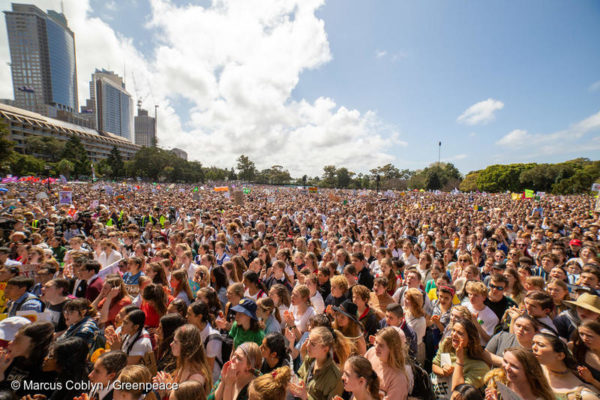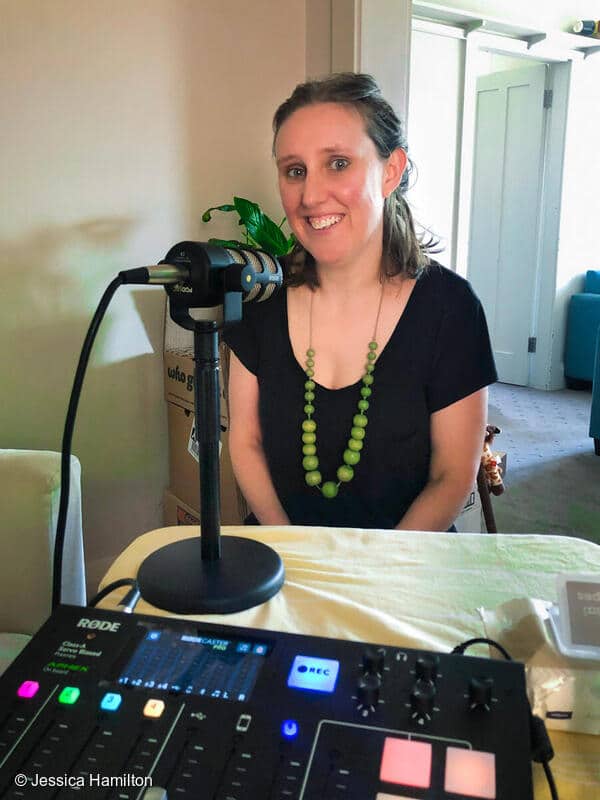When the future arrives to become the present, it can feel inevitable. But, of course, that simply isn’t so. Lindsay Soutar, a senior campaigner at Greenpeace, suspects this is how many feel about renewable energy targets – that they inevitably had to happen. The truth is that low-emissions futures don’t simply appear, they are fought for.
Behind the drive to green the energy sector and stop climate change is an army of advocates, be it in grassroots community organisations or environmental charities. The renewables industry, which has come out of 2020’s pandemonium charging, benefits enormously from their work both directly and indirectly. Yet, Soutar says, these groups often remain “a bit invisible to the industry.”
More importantly, these civil society organisations are left to campion the industry which often seems reluctant to toot its own horn.
“We always love it when we see industry voices coming out and speaking about the work they’re doing, the jobs being created, what’s possible and to tell governments and decision makers in public and visible ways what they need,” Soutar told pv magazine Australia. “At times it has felt like civil society organisations are doing that kind of work.”
“We don’t see the coal mining industry holding back from promoting their interests, do we? So I think it’s critically important the renewables industry gets out there and is visible.
“It has such a good story to tell.”
Grassroots to tall poppy
Soutar’s personal climate change “oh sh*t” moment happened in 2006 standing out the front of the Dendy cinema’s in Newtown, Sydney. She’d just walked out of Al Gore’s An Inconvenient Truth. “I turned to my friend and was like ‘what are we going to do about this?’”
Instead of pushing the impending crisis to a dark crevice of her mind, Soutar started a climate action group which sought to marry the disparate campaigns of all the other climate-driven community groups popping up across Australia. Soutar then went on to found and direct Solar Citizens.
In a strange coincidence that makes one wonder whether what comes to pass is not, in fact, inevitable, the group ran a 100% renewable campaign – which is precisely what Soutar continues to do, only she does it today as part of perhaps the world’s best-known environmental organisation, Greenpeace.
Soutar leads the organisation’s REenergise campaign, which is pressuring big Australian corporations to commit to 100% renewable energy. Since launching in December of last year, the campaign has seen giants like Woolworths, Aldi, Bunnings, Officeworks, and Telstra set decisive transition timelines.
Fighting the (same) good fight
For Soutar, the role of groups like Greenpeace is to push for ambitious renewable targets. Working on the flip side of that is the renewable energy industry, which needs to deliver those targets and transform intent to reality.
“Greenpeace can call for a 100% renewables powered grid but we need all those businesses out there delivering and making it happen – because it can’t happen without them – the people, the boots on the ground to do it.”
Of course, looking after the nitty-gritty business of developing renewables means eats into the time for advocacy – but Soutar says when industry voices are added to the choir of those calling for better policy, it makes all the difference. She points out that it was wonderful to see renewables developers offer their support of the NSW state government’s recent climate plan. “Making sure those announcements are publicly well received so that decision makers know they have support.”
People in renewables industries using the media more, Soutar believes, would hasten the green future both bodies are pushing for.
“Especially as part of this transition when we’ve got a deliberate misinformation campaign from the federal government and from Murdoch media who like to pretend the coal industry is the bedrock of Australian society and economy, it’s so important for the broader public to be seeing the faces of the renewable energy workers,” she says.

Marcus Coblyn/Greenpeace
Turning anxiety into action
It isn’t only industry who can make changes to quicken a low-emissions future, but individuals.
Greenpeace has also recently launched the podcast Heaps Better which is all about things everyday Australians can do to help conserve the climate. In other words, an audio guide to turn climate anxiety into action.
“We know there a huge amount of concern out there on climate and a lot of people don’t necessarily know what to do about it, so organisations like our have a critical role in saying what needs to happen and how you can contribute.”
This content is protected by copyright and may not be reused. If you want to cooperate with us and would like to reuse some of our content, please contact: editors@pv-magazine.com.









By submitting this form you agree to pv magazine using your data for the purposes of publishing your comment.
Your personal data will only be disclosed or otherwise transmitted to third parties for the purposes of spam filtering or if this is necessary for technical maintenance of the website. Any other transfer to third parties will not take place unless this is justified on the basis of applicable data protection regulations or if pv magazine is legally obliged to do so.
You may revoke this consent at any time with effect for the future, in which case your personal data will be deleted immediately. Otherwise, your data will be deleted if pv magazine has processed your request or the purpose of data storage is fulfilled.
Further information on data privacy can be found in our Data Protection Policy.